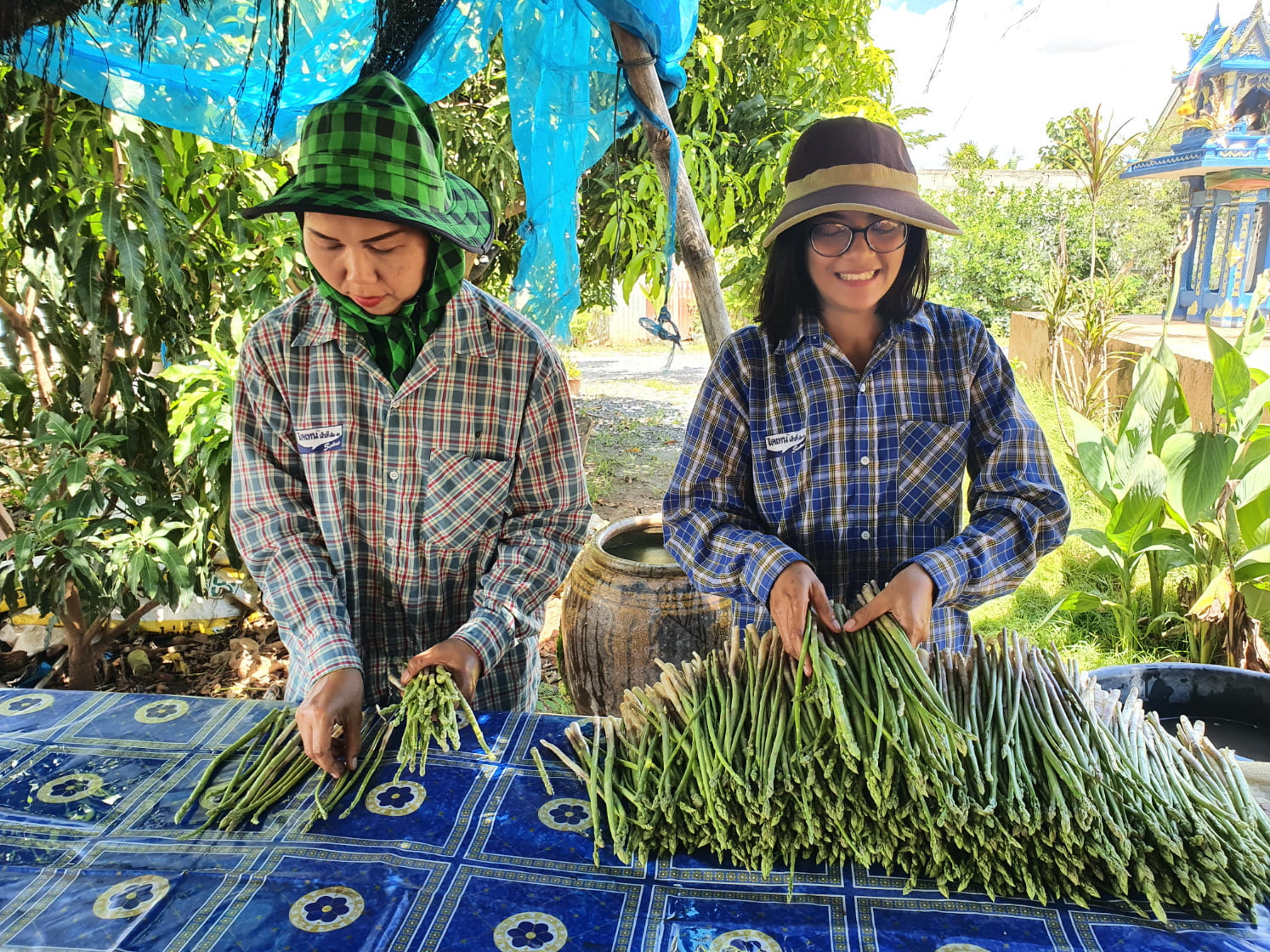Story
Partnership between Thailand and Japan to
Create an Ideal Agricultural Business
The agricultural industry is changing day by day. For example, due to global climate change and economic globalization. Our food business reflects these changing times and we work with flexibility that delivers satisfaction to everyone involved, from production and distribution to consumption.
About Sonoriku
Sonoriku's agricultural business began in 1985 when the company's founder brought asparagus seeds from Japan and planted them in Thailand.
The company worked with local farmers to grow high-quality vegetables and deliver them to Japan. This business challenge succeeded thanks to the strong yen back then, which made it possible to construct a company-owned agricultural farm in Nakhon Pathom, a province full of nature just outside of Bangkok. What began as the export of just asparagus has now grown to include okra, mango and baby corn.
In addition to growing fresh vegetables that have already proven to be a success, we are also engaged in new challenges. The initiatives include developing new asparagus varieties that can thrive in Thailand's soil and cultivating Thai-grown sweet potatoes. By doing so, we aim to continue enhancing the value of our products.
Our Insistence on "Grown in Thailand"
There are advantages to growing vegetables in Thailand as opposed to Japan.
The climate, for example. Thailand has hot and humid weather throughout the year, averaging 30°C and 70% humidity. This allows us to grow and provide vegetables of stable quality all year round. Take asparagus and okra for example. Their typical season lasts between early to mid-summer in Japan, but we can ensure that they remain available to consumers all throughout the year. This is a value that we consider unique to the Sonoriku brand and our Thai-grown products.
Furthermore, the relationships of trust that we have built with Thai farmers since 1985 are an important factor that supports the quality we offer at Sonoriku. As two countries living in the same Asian region, we share common considerations in valuing conscientious work while coexisting with nature.

To Create Value That Can Be Returned to Farmers
Many farmers, not just in Japan but also throughout the world, face a similar issue: no matter how exceptional their agricultural products are, if they don't have their own distribution network, they cannot sell their products at prices that match their true values. It is for that reason that many people in the younger generation are turned off by the thought of working in primary industries like agriculture and fishery.
At Sonoriku, we strive to return profits to the farmers who produce products of value. To this end, we have formed 1,000 alliances with local farms in Thailand. Furthermore, in 2020, we became a member of the Fukuoka Sonoriku Group, which is a company that supports distribution in Japan. Through this partnership, we aim to create an ideal agricultural business that takes control of all the stages of the supply chain, from production to distribution.
Our History
- 1985
-
-
Asparagus seeds are brought from Japan to Thailand and farmers are employed to grow them.
- The Plaza Accord, signed in the same year, creates a strong yen. Against this backdrop, the company begins producing fresh vegetables in Thailand and looks to establish a business model to sell them in the Japanese market.
-
Asparagus seeds are brought from Japan to Thailand and farmers are employed to grow them.
- 1987
-
- Taniyama Siam Co., Ltd. is founded. A vegetable processing factory (asparagus factory) is built in Nakhon Pathom, Thailand.
- Export of Thai-grown asparagus begins.
- 1994
-
- Export of Thai-grown okra begins.
- 2000
-
- Export of Thai-grown mango begins.
- 2003
-
- A mango factory is built.
- Export of Thai-grown mangosteen begins.
- 2016
-
- Export of Thai-grown baby corn begins.
- 2020
-
- All of Taniyama Siam's shares are transferred from JALUX Inc. to Fukuoka Sonoriku Co., Ltd.
- 2023
-
- Changed company name from Taniyama Siam Co., Ltd. to Sonoriku (Thailand) Co., Ltd.